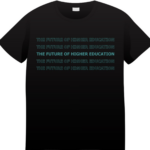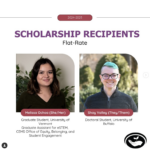Tuesday, 9 June 2020 – 1:35pm
By Sungman (Tyler) Kim
(At the time I wrote this, it was before I got acquainted with ACPA’s Commission for Global Dimension of Student Development. Nonetheless, I wrote this piece at that time in hopes that it helped others who were also in the post-graduation journey. With that said, I would like to acknowledge that having a community such as the Commission for Global Dimension of Student Development is an invaluable resource, especially in terms of support and knowledge that there are other international students/professionals (like me) on the F1/OPT and H1-B Visas.)
I work as the program coordinator in the Office of the Chaplain and Religious Life (OCRL), within the Division of Student Affairs in Southern Methodist University. I have a South Korean passport and first came to the United States to attend graduate school on an F1 Visa in 2016. Fast forward 3 years, after receiving my M.Ed. in Higher Education Policy and Leadership and exhausting my one-year OPT, I’m in my second year working full-time on an H1-B visa. For those who are not aware of the F1, OPT, and H1-B these are visa categories an international student/worker would have to apply/maintain to legally study, work and live in the United States.
Picture: Tyler with his M.Ed Cohort
As a former international student enrolled in a master’s program and discussing U.S. higher education, it was awkward to relate with the class content, texts, classmates, and the general experience. My experience of going to college in South Korea was very different and unique from my American classmates who attended institutions in the US. As a result, I felt a disconnect, not only with my past experiences but also sadly with my identity. To overcome this, I dived into everything that somewhat resembled my educational and cultural background. The outcome of this was an accumulation of papers and projects based on the international student perspective of US higher education, the H-1B/OPT processes, and everything related to foreign students studying and living in the United States. Thinking back, I realized that I found much solace in reading papers on this topic as I prepared my work, thinking that I wasn’t alone. Despite how challenging the two years were for me, I was able to foster strong friendships within my cohort and most importantly a better understanding of US higher education.
My transition to full-time work could not have been a smoother one as the transition occurred from my graduate assistantship to a full-time position within the same office. Looking back at it now, I believe that it was a mixture of good-timing and God’s plan for me. However, it was also met with obstacles. The first obstacle that I faced was making a case for my one-year Optional Practical Training (OPT). It was a hard sell, especially when I didn’t have the confidence in being able to respond to the question, “What happens after the 1 year of OPT?”. I remember at the time feeling that there were too many fires to put out at once, and so I decided to put one out at a time. I forced my mindset to not worry about something that has not become a problem yet, like the question of employment after OPT.
Another obstacle was not having a support system that I could relate to (this was before I got acquainted with ACPA’s GDSD), going through or have gone through the same process before. I spent countless hours online searching to find other foreigners that worked in student affairs, hoping that the stories of their journey would be of guidance. What I found were many stories from the IT sectors, those working for private companies and those going through the faculty route, but not any of those were in my shoes. Some information was relevant and helpful for me to see other perspectives, but some just seemed vague and even more confusing. Having to navigate this alone, made me think if it was even possible for me to continue to live and work in the US as a Student Affairs professional.
Picture: Tyler standing next to his poster on the Civil Rights Pilgrimage
The one year of OPT gone by quickly and I had to face the dreaded question of what is next? Amid various thoughts and concerns about my future, I had a frank conversation with my supervisor. I shared my concerns and about the H1-B process (to the best of my knowledge), he acknowledged my feelings and offered to work through the process together. I would like to stress that having this frank conversation is important because it is on you to help your supervisor understand what you need (also applicable during my OPT as I transitioned from GA to full-time). There may be times that your supervisor might not be aware of what you need and therefore would not be able to act on your behalf. My H1-B journey started from that conversation and rest unfolded naturally. My supervisor vouched for my employment and believed in my expertise in bridging cultural differences and the importance of that in higher education. I’m so grateful for the journey I have been through so far and hope by sharing my story would be of help to other international professionals looking for employment in student affairs.
Writer’s Bio:
Sungman (Tyler) Kim, received his M.Ed in Higher Education Policy and Leadership in the Annette Caldwell Simmons School of Education and Human Development in the summer of 2018 and is excited to continue to work in Division of Student Affairs. Starting from Fall 2020, Tyler will begin his journey as a doctoral student as part of the Ed.D. in Higher Education program at SMU.
Tyler grew up as a missionary kid living in the Philippines for over 18 years and went back to his home country South Korea to get his bachelor’s degree in political science from Sogang University. Personally, Tyler identifies as a ‘Third Culture Kid,’ and is passionate about reaching out to other TCKs.



Recent Comments